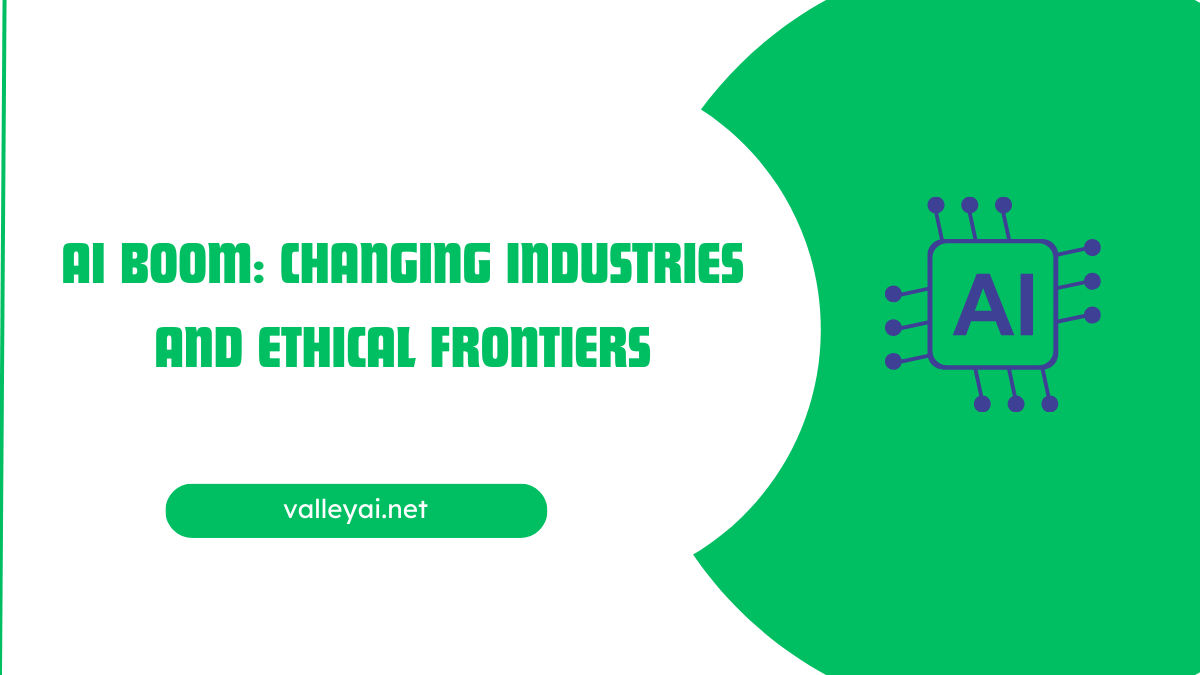Over the past decade, artificial intelligence (AI) has advanced at an astounding rate, vastly exceeding expectations as new techniques such as deep learning unlock unprecedented capabilities.
What once dwelled only in the realm of science fiction has become a scientific reality. New world-changing applications powered by AI now seem to emerge almost daily, offering ingenious solutions to problems once thought intractable by computer systems.
As the capabilities of AI rapidly expand across areas like computer vision, natural language processing, prediction, and optimization, so too does its integration into nearly every industry, economic sector, and aspect of modern life. AI now underpins everything from smartphone assistants to medical diagnoses to stock market trades.
Looking ahead, continued progress in the field hints at a future driven by intelligent machines cooperating with and enhancing human capabilities for the betterment of society. We have only begun to scratch the surface of artificial intelligence’s benefits and perils.
The AI Boom
The growth of AI in recent years can be attributed to two key factors: the vast increase in computing power with the advent of GPUs and TPUs, and the abundance of data now available for training machine learning models. Together, these developments have enabled AI algorithms to tackle more complex tasks across a wider range of domains.
Whereas early AI systems were limited to niche applications like chess, today’s AI handles everything from language translation to medical diagnosis. The breakthroughs behind this AI boom include:
- New neural network architectures, like convolutional and recurrent neural networks, can process various data types like images, video, speech, and text.
- The rise of deep learning techniques that allow systems to learn directly from raw data through multiple neural network layers is reducing the need for human engineering of features.
- The accumulation of vast datasets for training models is enabled by the growth of computing infrastructure and the increased digitization of numerous industries.
Proliferation Across Industries

The rapid maturation of AI has sparked a gold rush across nearly every industry vertical. Companies heavily invest in AI to drive efficiency, insights, and competitive advantage.
With AI systems capable of producing increasingly sophisticated content, new AI detection tools are being developed to determine whether text, audio, or visual media was created by a human or an AI system.
AI rewriter tools utilize natural language processing algorithms to automatically rewrite text while preserving its original meaning. These tools employ techniques such as paraphrasing, synonym replacement, and sentence restructuring to produce content that is unique and plagiarism-free.
With the ability to swiftly generate variations of text, AI rewriters aid in content creation, editing, and optimization across various platforms, catering to the demands of digital marketing, publishing, and academic writing.
Healthcare
In healthcare, AI algorithms analyze medical scans to detect tumors and other anomalies. AI chatbots provide initial patient interviews and triage. Big data analytics identify potential treatments and detect outbreak risk factors. Robotic surgeons even augment human capabilities.
Going forward, health AI could enable more accurate diagnoses, personalized care plans, and life-saving interventions far beyond human limits.
Business
AI informs nearly every business function today. Intelligent search underpins e-commerce recommendations. Chatbots handle customer service queries. Enterprise analytics reveal operational bottlenecks. Automated assistants boost employee productivity. Fraud detection models secure finances. The applications run the gamut.
In the years ahead, AI business tools promise to automate rote work, uncover data-driven insights, and take on responsibilities solely requiring human judgment.
Transportation
Transportation is being radically transformed by artificial intelligence. Self-driving cars and trucks can navigate roads safely without human intervention. AI algorithms also optimize flight paths and shipping routes.
By reducing costs and improving efficiency, AI has the potential to revolutionize how people and goods are transported, leading to faster deliveries, fewer accidents, and more environmentally sustainable transportation networks. The promise is cheaper, faster, and safer transport through the power of smart machines.
New Frontiers
AI advancement shows no signs of slowing down. With models continuously honed on new data, the technology steadily pushes into new frontiers.
Multimodal AI
An emerging trend is uniting different data types under singular models. For example, speech recognition models now integrate visual data to better understand spoken languages.
As multimodal AI advances, we may see innovative applications like real-time translation devices that fuse auditory and visual cues for more nuanced understanding across languages. The result will be AI systems with more complete, adaptable, and human-like perception.
Trust and Ethics
As AI assumes greater agency, researchers deliberately engineer tools to ensure ethical, fair operations. Novel techniques provide transparency into model behaviors and detect biases. Initiatives are also underway to develop AI that aligns with moral values around issues like privacy, consent, and equality. Such responsible innovation will be crucial for integrating AI that people can trust across industries.
General Intelligence
The long-term aspiration of AI remains artificial general intelligence (AGI). Also known as strong AI, AGI refers to flexible, human-level cognition. If achieved, AGI could rapidly unlock solutions to hugely complex challenges like climate change, disease eradication, and space exploration.
However, it also raises pressing questions about ensuring such super-intelligent systems remain aligned with human values and priorities. The path toward AGI will require grappling with these philosophical challenges around ethics and
Outlook
The evolution of AI shows no signs of slowing down. With AI investment booming, computing power expanding, and datasets proliferating across industries, machines are rapidly acquiring new capabilities. Recent innovations have already delivered transformative solutions while also raising important ethical considerations.
As researchers continue carefully guiding the technology’s development, AI promises immensely powerful general intelligence in the long term. Harnessing its capabilities wisely may profoundly augment and enhance humankind.
Admin
My name is Kaleem and i am a computer science graduate with 5+ years of experience in AI tools, tech, and web innovation. I founded ValleyAI.net to simplify AI, internet, and computer topics also focus on building useful utility tools. My clear, hands-on content is trusted by 5K+ monthly readers worldwide.

